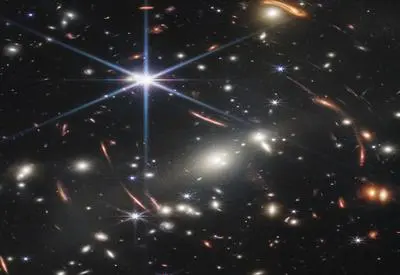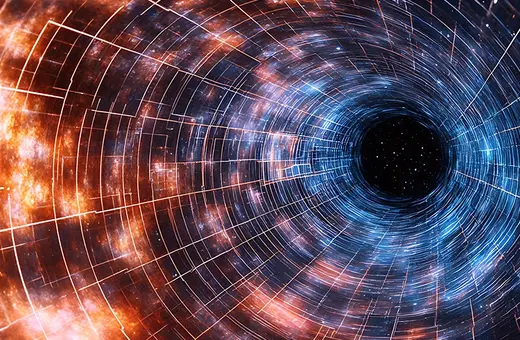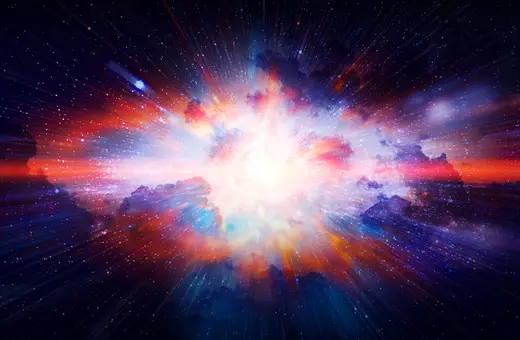Distinguished cosmologist and Stephen Hawking co-author, George Ellis, in an interview about the limits of cosmology, and why we can never know whether the universe had a beginning or has existed forever.
Most people today believe in The Big Bang theory when it comes to the origins of the cosmos. Can we be certain that the universe had a beginning?
The history of the universe involves various stages. At very early times, it went through an extraordinarily rapid period of accelerating expansion when it became hugely bigger in a very short time; this is called inflation. At the end of inflation, that expansion had caused all the matter and radiation to dilute to almost zero, but then the field that had caused inflation decayed into very hot matter and radiation that continued expanding, but at a slower rate; that was the start of what we call the Hot Big Bang Era. The physical processes that occurred during this era are well understood, and all cosmologists agree on what happened then.
What we do not know is what happened before inflation began. The universe may or may not have had a beginning in that pre-inflationary era. The singularity theorems that Stephen Hawking developed do not apply, because the required energy conditions are now known to not be satisfied at that pre-inflationary time. In any case, a theory of quantum gravity is expected to apply at early enough times, but we don’t know what that theory is. To sum up: we do not know if the universe had a start, but we do know there was a Hot Big Bang.
___
In either case, the universe would have existed for an infinite time. That is indeed problematic because we could never prove that: we have no relevant observations to check this.
___
Is the inflation hypothesis on sturdy ground, or are there any reasons to question it?
It’s on reasonably sturdy ground, and has one great big plus going for it: it provides a theory for the origin of primordial fluctuations that will later grow into galaxies by gravitational instability. We don't have any other theory that does that, and that’s the prime reason it is accepted by most cosmologists.
The downside is that (a) we don't have a solid theoretically grounded candidate for the inflaton - the field causing inflation - which also gives the right observational results, So, in fact, it has no solid link to fundamental physics. And (b) there is a mostly ignored issue but one which I think is important: how did the supposed quantum fluctuations which led to structure formation become classical? Most people ignore this issue, but I think it’s an important question.
 SUGGESTED READING
The Big Bang didn't happen
By Eric J. Lerner
SUGGESTED READING
The Big Bang didn't happen
By Eric J. Lerner
If the universe didn’t have a beginning, that would presumably mean that the universe has existed forever – for an infinite amount of time. But you have said previously that any theory that talks about infinity isn’t really a scientific theory, as there’s no possibility of proving that an infinity of anything exists. So if the universe has existed for an infinite amount of time, where would that leave cosmology’s scientific status?





















Join the conversation